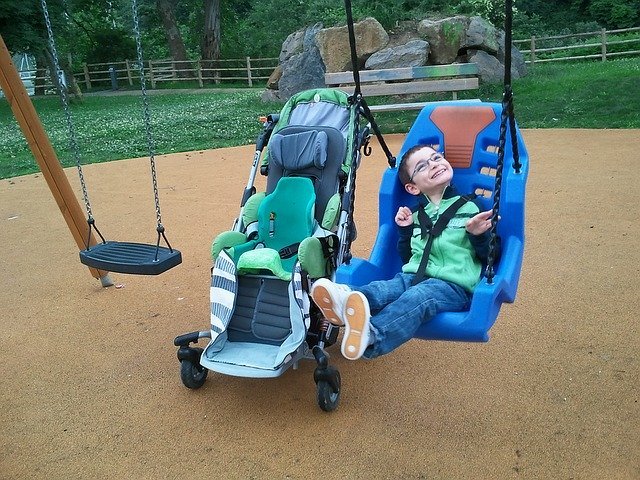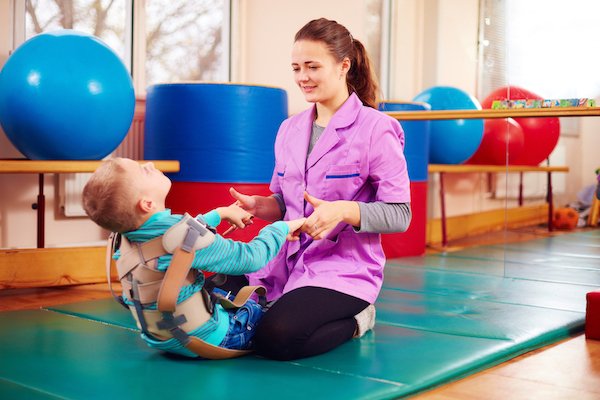The birth of a child into any home is usually received with great joy and celebration. The once-pregnant mother heaves a sigh of relief, having ended the nine months’ journey and now with her baby to love and care for finally. However, when the child begins to show some signs that all may not be going well, the parents become disturbed and begin to wonder what the problem could be.
No parent wants to see their child ill or harmed, let alone disabled, in any form. Learning that your child has a disability is the beginning of an unplanned journey. Trust me, the news is not a pleasant one to the ears at all! It usually leaves the parents devastated with diverse shades of emotion such as shock, denial, guilt, rejection of the child, and so on.
Parents are likely to engage in “the blame game,” one blaming the other of being the cause of the disability, citing some likely actions of theirs in the past. Either of the couples may deny that the baby is theirs and that something must have gone wrong somewhere. This can lead to either of the couple or both not accepting the child as a befitting member of the family and may possibly seek a means to get rid of the child.
Truth be told, raising a child with a disability is a herculean task, which can be physically, financially, emotionally and psychologically draining. However, experience has shown that the earlier parents accept the diagnosis of their child and move on with life, the better it is for them. If you are presently faced with this situation, I want to encourage you to hang in there. You and your child will get through this!
In this introductory article of the series on “Coping and managing disabilities in families”, I will focus on what to do as parents if your child shows any form of ‘abnormality’.
Step 1: Early identification (diagnosis) and intervention
Early identification is key, as it helps you take the needed steps towards helping your child. The earlier you identify the signs of disability in your child, the better for the child and you! When the signs of a disability are identified, or something seems unusual about the child, it is very crucial to visit a paediatrician and other health professionals for diagnosis.
"No parent wants to see their child ill or harmed, let alone disabled, in any form. Learning that your child has a disability is the beginning of an unplanned journey."
Step 2: Find out about available support system(s) for your child
After your child gets an early diagnosis of their condition, it is time to find out about services available around you in order to begin early intervention and
treatment, which will, in turn, produce better outcomes in your child. Feel free to ask the physician or other professionals questions you may have concerning support systems. It is important to note that if a diagnosis is delayed, other difficulties may set in.
Step 3: Read up and research on your child’s disability
Read and find out more information about your child’s disability to give you a broad knowledge of how to meet your child’s needs. Don’t rely only on one source of information (i.e. from your physician) also check out other reports on the diagnosis. If you do your research properly, it will help you to ask the expert(s) the right questions. You will also be able to relate better to the true situation of your child. Remember, you spend more time with your child than the experts.
Another advantage of researching on the disability condition of your child is that you will know the best way to relate with your child and have a better understanding of what he/she is going through.
Early identification is key, as it helps you take the needed steps towards helping your child. The earlier you identify the signs of disability in your child, the better for the child and you!

Step 4: Talk to relevant people with similar challenges and also share your experiences
Talk to other parents who have children with special needs or may know a parent of a child with special needs. Remember, a problem shared, as they say, is a problem half-solved.
Please do not be shy or embarrassed to talk about your child with special needs when the need arises; remember, not everyone out there understands what it means to be “special” and, some may feel like you’re not doing something right.
Persons may sometimes have an unpleasant attitude about things they are unfamiliar with. Have the right response at your fingertips for questions surrounding your child’s condition. That way, you’re creating the needed awareness about special needs.
Step 5: Accept, love and stand up for your child!
Please do not be ashamed of your child or deny them the help needed. Facing disability with a positive attitude and loving your child like any other will do well to make the journey a smoother one.
Dealing with the news of your child’s disability can be very devastating and life-changing for parents. However, you and your child can pull through this. Follow the above steps, and I dare to tell you that you will be on a good start to dealing with your child’s disability.
Feel free to share your experiences and insights on this topic in the comments section. Watch out for follow-up posts on the series “Coping and managing disabilities in families”. Let’s dazzle together.

Dr. Grace Chinenye Ilori is a dedicated and trained special needs educator. She has a PhD in Special Education. Dr. Ilori serves as a teacher and interventionist for children with special needs and their families for over 7 years. She currently consults
and trains teachers on special needs' best practices. Her interests include helping children with special needs reach their potential as well as supporting their families. Dr. Grace Ilori enjoys her spare time with her family, reads, volunteers and travels.











Comments 5
Such a great read!
Dr Ilori, Thank you for promoting love between parents and their physically challenged children, helping the children to be relevant in life
Dear Ngozi, thank you for your comment. We value your appreciation of Dr. Ilori’s work.
This is great Dr. Grace Ilori! It’s loaded with information, but for me, dazzling together irrespective of the disability type, is the take-away for me in this article.
Dear Henry, thank you very much for your comment. Dr. Ilori is sure great at what she does. We can only but dazzle together irrespective of any circumstance! I agree with you.